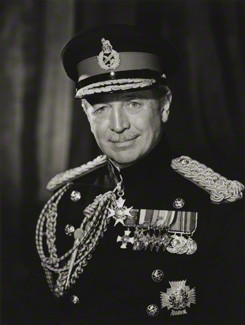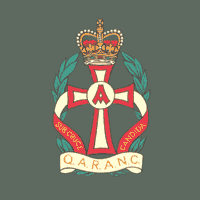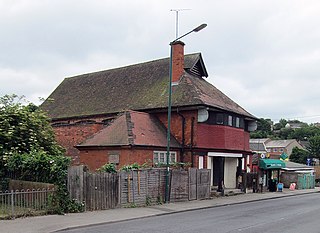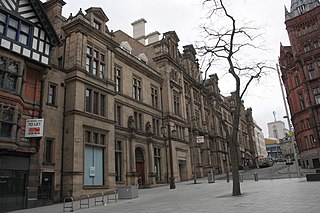Related Research Articles

Postmaster General of the United Kingdom was a Cabinet ministerial position in HM Government. Aside from maintaining the postal system, the Telegraph Act 1868 established the Postmaster General's right to exclusively maintain electric telegraphs. This would subsequently extend to telecommunications and broadcasting.
This is a partial timeline of significant events in postal history, including dates and events relating to postage stamps.

International Distributions Services plc, trading as Royal Mail, Parcelforce and GLS, is a British multinational postal service and courier company, originally established in 1516 as a government department. The company's subsidiary Royal Mail Group Limited operates the brands Royal Mail and Parcelforce Worldwide (parcels). GLS Group, an international logistics company, is a wholly owned subsidiary of Royal Mail Group. The group used the name Consignia for a brief period in the early 2000s and Royal Mail until October 2022.

Metro is the United Kingdom's highest-circulation freesheet newspaper. It is published in tabloid format by DMG Media. The newspaper is distributed from Monday to Friday mornings on trains and buses, and at railway/Underground stations, airports and hospitals across selected urban areas of England, Wales and Scotland. Copies are also handed out to pedestrians.

General Sir John Winthrop Hackett, was an Australian-born British soldier, painter, university administrator, author and in later life, a commentator.

James Joseph Walsh, generally referred to as J. J. Walsh, was Postmaster General, of the Irish Free State from 1923 to 1927. He was also a senior Gaelic Athletic Association organiser and Cumann na nGaedheal politician. Later, Walsh had heavy connections with fascism, including his association with Ailtirí na hAiséirghe.

Beeston and Stapleford was an urban district in Nottinghamshire, England, from 1935 to 1974.

Queen Alexandra's Royal Army Nursing Corps is the nursing branch of the British Army Medical Services.
Dover Grammar School for Boys (DGSB) is a selective secondary school located in Dover, United Kingdom, whose origins can be traced back to the Education Act (the 'Balfour Act') of 1902. Originally founded as the Dover County School for Boys and Girls with locations behind the Dover Town Hall and on Priory Hill, the co-educational arrangements were early on prohibited by the Kent Education Committee. Dover Grammar School for Boys now occupies a prominent position overlooking the town of Dover on Astor Avenue. Its sister school is located in Frith Road and known as the Dover Grammar School for Girls (DGSG).

This is a survey of the postage stamps and postal history of Jamaica.

Henry Bishopp, (1605–1691), also spelt Bishop and Bisshopp, from Henfield in West Sussex, England was a Postmaster General of England and inventor of the first postmark used on mail. He was the second son of Sir Thomas Bishopp, 1st Baronet of Parham also in West Sussex. Henry at first fought for King Charles I, but was reconciled with parliament in 1647, after spending two years in Virginia. In the meantime his Rectory estate in Henfield had been sequestered. However, he was restored to royal favour in 1660 and served as postmaster-general between that date and 1663. At his death in 1692 (N.S.) his Rectory estate in Henfield passed to his great-nephew Sir Cecil Bishopp, 4th Baronet.

The Postmasters General of Ireland, held by two people simultaneously, was a new appointment set up as part of the establishment of the Irish Post Office independent from that of Great Britain, by the Act 23, 24 George III in 1784. The post lasted nearly fifty years. The act was not repealed upon the Act of Union in 1800 but in 1831.

The General Post Office (GPO) was the state postal system and telecommunications carrier of the United Kingdom until 1969. Before the Acts of Union 1707, it was the postal system of the Kingdom of England, established by Charles II in 1660. Similar General Post Offices were established across the British Empire. In 1969 the GPO was abolished and the assets transferred to The Post Office, changing it from a Department of State to a statutory corporation. In 1980, the telecommunications and postal sides were split prior to British Telecommunications' conversion into a totally separate publicly owned corporation the following year as a result of the British Telecommunications Act 1981. For the more recent history of the postal system in the United Kingdom, see the articles Royal Mail and Post Office Ltd.

The postal service of the British Army is today provided by the British Forces Post Office but its origins may be traced back to Saxon times.

Major General Charles Edward Maurice Lloyd, CBE was a senior officer in the Australian Army. Lloyd graduated from the Royal Military College, Duntroon in 1918 as a regular officer in the artillery and subsequently served in a range of staff and regimental positions in the inter-war years. He later saw service in the Second World War, during which he held senior staff and administrative positions in the Middle East, the Netherlands East Indies, Papua and Australia. Later he worked as a newspaper executive, as chief of several United Nations agencies, and in private enterprise. Lloyd died in 1956.
The 1921 Birthday Honours were appointments by King George V to various orders and honours to reward and highlight good works by citizens of the British Empire. The appointments were made to celebrate the official birthday of the King, and were published on 3 and 4 June 1921.
Ernest Tristram Crutchley was a British civil servant who was the predecessor of the first British High Commissioner to Australia.

William Richard Gleave ARIBA was a surveyor and architect based in Nottingham.

The Central Post Office in Nottingham was based on Queen Street from 1898 to 2019.
Octavius Thomas Oldknow was Sheriff of Nottingham 1806-07, Mayor of Nottingham in 1822 and 1829, and Postmaster of Nottingham from 1846 to 1854.
References
- ↑ "Trinity Law School" . Irish Independent. Ireland. 7 March 1905. Retrieved 12 February 2023– via British Newspaper Archive.
- ↑ "Dublin Man Commissioned" . Weekly Freeman’s Journal. Ireland. 29 May 1915. Retrieved 12 February 2023– via British Newspaper Archive.
- ↑ "Former Postmaster" . Sheffield Evening Telegraph. England. 15 March 1941. Retrieved 12 February 2023– via British Newspaper Archive.
- ↑ "Influenza Death Toll" . Irish Independent. Ireland. 7 March 1919. Retrieved 12 February 2023– via British Newspaper Archive.
- ↑ "Local MP Knighted" . Nottingham Journal. England. 8 June 1944. Retrieved 12 February 2023– via British Newspaper Archive.
- ↑ "Letters to Middle East" . The Scotsman. England. 22 July 1941. Retrieved 12 February 2023– via British Newspaper Archive.
- ↑ "No. 36544". The London Gazette . 8 June 1944. p. 2567.
- ↑ UK Retail Price Index inflation figures are based on data from Clark, Gregory (2017). "The Annual RPI and Average Earnings for Britain, 1209 to Present (New Series)". MeasuringWorth. Retrieved 11 June 2022.